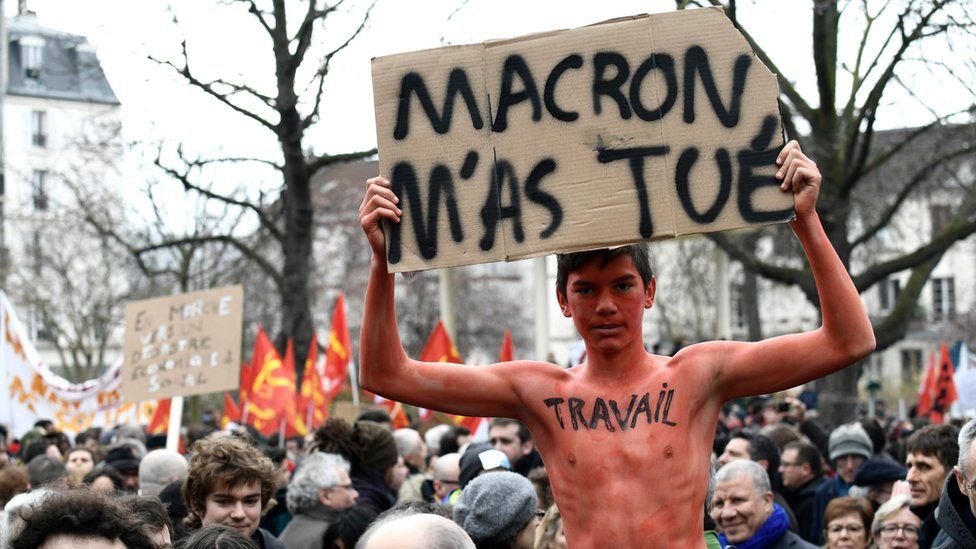France strikes: Macron reforms spark nationwide strikes
- Published

French police clashed with protesters in Paris and in the western city of Nantes as public sector workers across the country went on strike.
They are reacting against President Emmanuel Macron's plans to cut back the state sector.
Tens of thousands of teachers, nurses and other workers joined rail staff on strike for the first time since Mr Macron came to power.
Almost a third of Paris flights and most train services were cancelled.
Electricity output also fell, while 13% of teachers joined the walk out.
President Macron intends to cut the numbers of public sector workers, including by voluntary redundancy, and to introduce merit-based pay.
Rail staff meanwhile fear his plans to end early retirement, job-for-life guarantees and automatic yearly pay rises.
Polls show the majority of French voters support the strikes, but a larger majority support the reforms - forcing the government to proceed, but with caution.
"Discontent and worry are spreading very quickly," said Jean-Marc Canon, secretary-general of one of France's biggest unions, UGFF-CGT.
Rail workers have promised three months of industrial action from 3 April.
While public sector workers have no plans for further actions, they are meeting next week to discuss it.
The strikes are a major headache for President Macron who was elected on the promise to shake up the country's state sector, which has 5.4 million employees.
This year marks the 50th anniversary of the revolt of May 1968, which almost toppled the government.
On 22 March 1968, students and left wing groups occupied a building at Paris Nanterre University, kick-starting the unrest that followed.
The strikers picked 22 March deliberately to echo those events.
The Macron administration is also aware of strikes in 1995, which drew massive popular support and forced a government reversal of planned reforms.
"What we need to avoid is that all the grievances fuse together, as was the case in 1995," a government official told Reuters news agency.
- Published31 August 2017
- Published11 May 2021
- Published29 August 2017